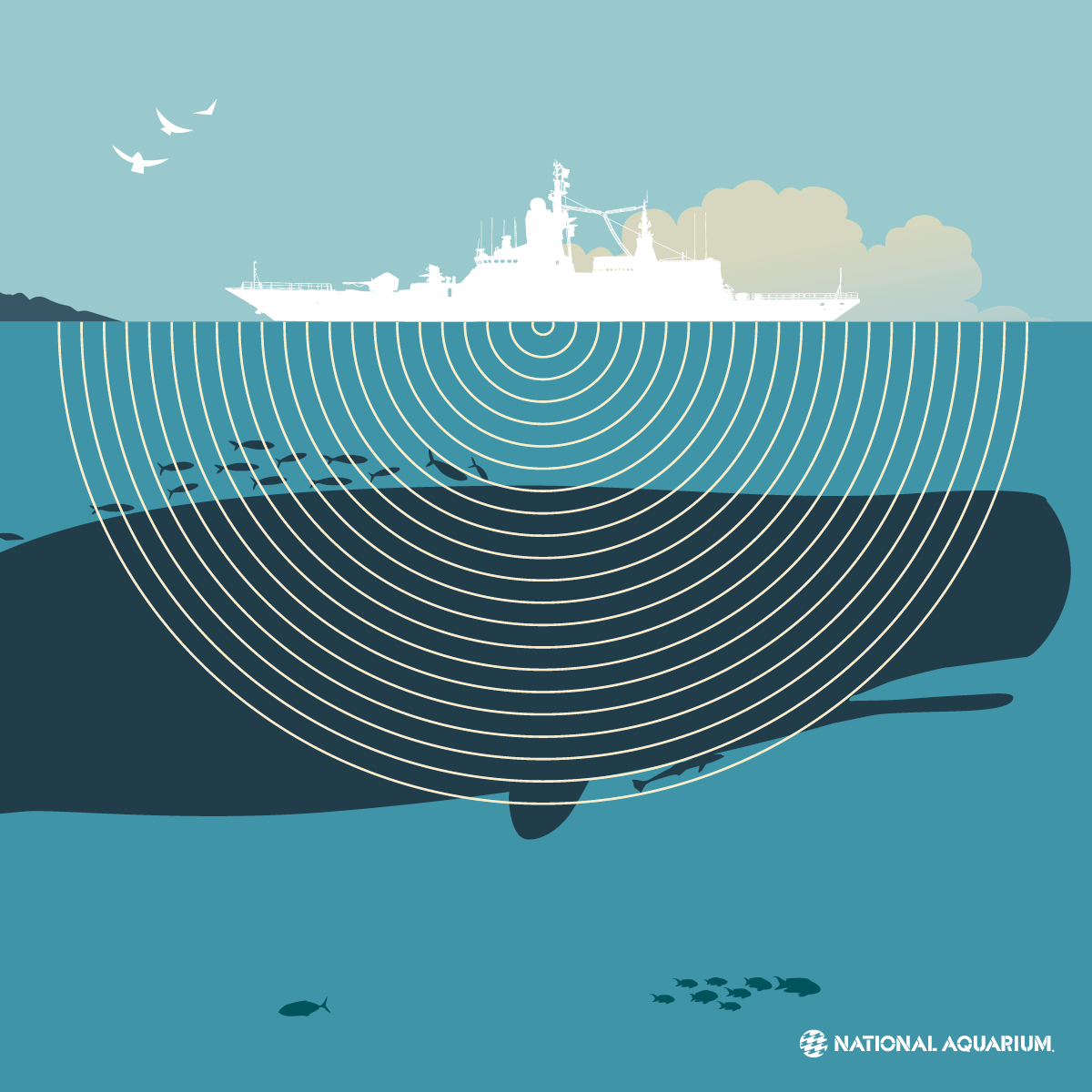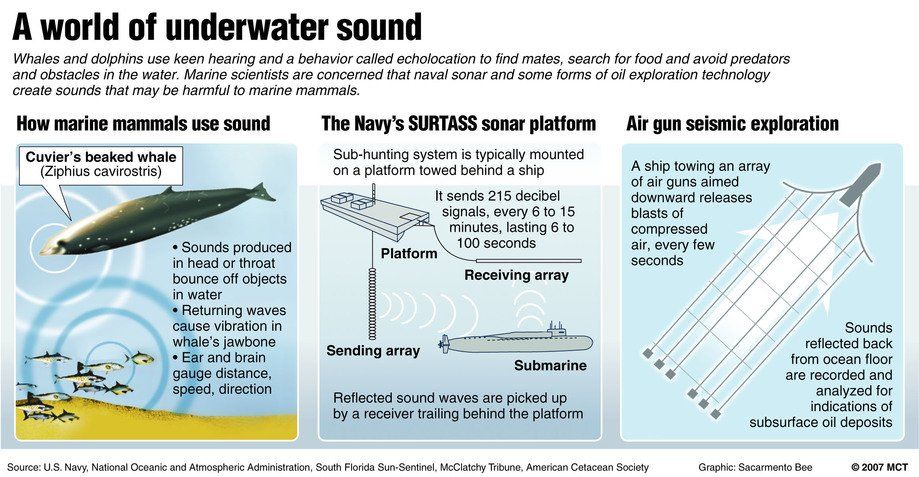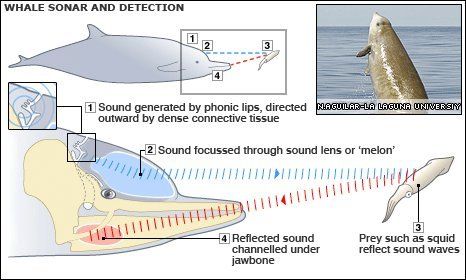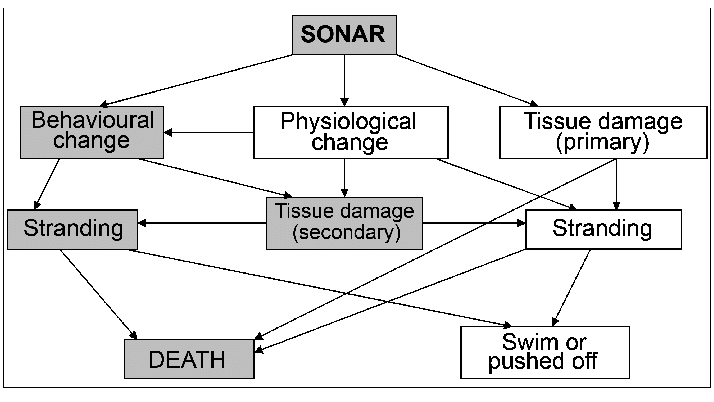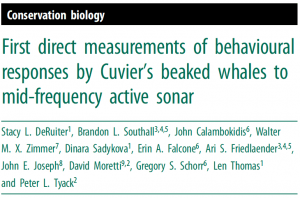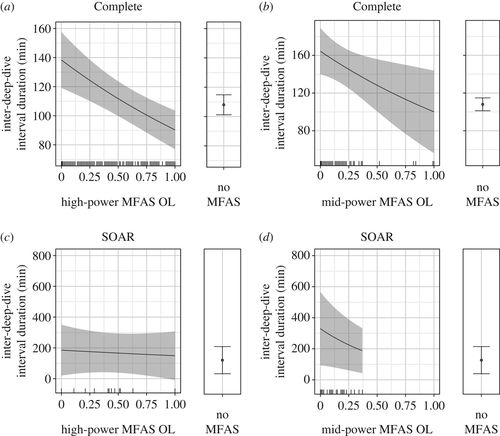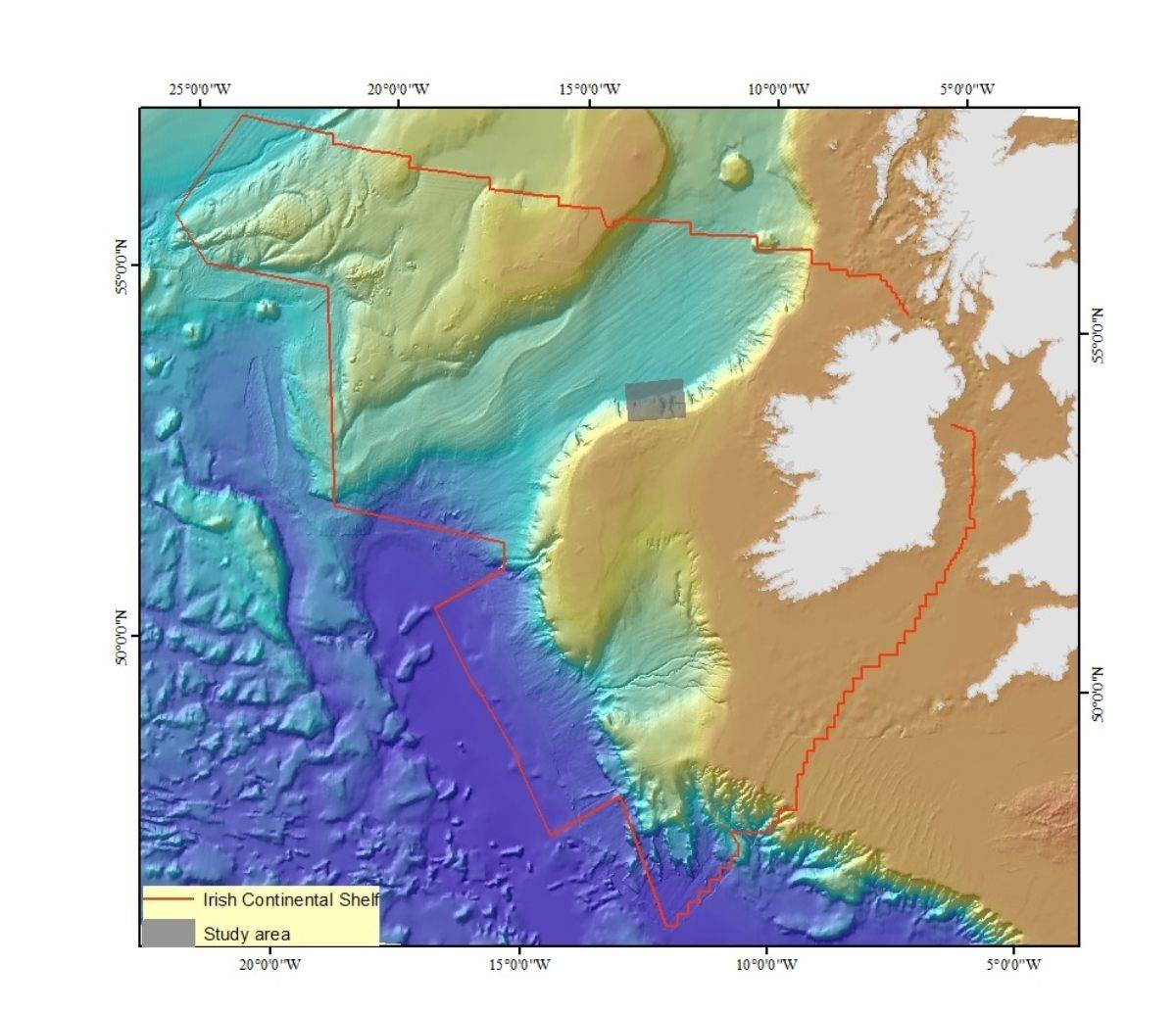Marine Scientists Demand Ban on Mid-Frequency Active Military Sonar To Protect Whales!
There has long been concern that noise pollution from military sonar pulses can cause mass stranding’s of whales, and now, after a new review has highlighted this connection, researchers around the world are calling for a wide-scale ban on military sonar to protect deep diving species, such as sperm and beaked whales.
A new review paper published in the Proceedings of the Royal Society of Biology
has shown how a ban on the use of mid-frequency active sonar (MFAS) around the Canary Islands since 2004 has been successful at reducing negative impacts from noise pollution that appeared to be causing the deep diving beaked whales to strand.
Up until the 1960's, mass stranding events (MSE's) or unusual mortality events (UME's) were quite rare, however, quickly increased in frequency of occurrence after the development and onset use of MFAS (Bernaldo de Quiros et al
., 2019). Strandings of beaked whales are a particular cause for concern when two or more whales are found within a six day period, with up to 74 km apart, indicating the stranding event was likely the result of sound pollution (Brownell et al
., 2008). Temporal and spatial connections to MFAS and MSE's were first noted in the Canary Island in the 1980's (Simmonds & Lopezjurado, 1991), however definite links were determined for similar associations in Greece in 1996 and in the Bahamas in 2000 (Cox et al
., 2006).
Whales and dolphins, particularly deep diving whales, such as sperm whale ( Physeter macrocephalus
) and beaked whales ( Ziphius
spp.), rely on sound to communicate, navigate and to forage at great depths of > 1000 m, so their survival depends on their hearing and sound production capabilities. The sperm whale is the loudest animal on Earth, capable of producing sounds above 230 dB, allowing it to communicate with conspecifics over vast distances, across ocean basins.
Noise pollution from active military sonar and underwater exploration for oil and gas (using seismic airgun blasting), pose significant threats to the long-term viability of deep diving cetacean populations and their conservation.
In toothed whales, (e.g. dolphins, porpoise, killer whales, sperm whales and beaked whales, sound is produced in the head and passed through the melon, an organ made of fatty tissues that helps to focus sound for echolocation. As it passes through phonic lips, it is directed outward by dense connective tissue. The melon helps to focus sounds like a lens, allowing the animal to target prey, such as squid and fish. Sound that is reflected is picked up by more fatty tissue along the bottom jaw which channels sound to the inner ear.
Mid frequency has been shown to be emitted at a 170 to 195 dB, almost twice as loud as an aircraft take off at around 110 dB, and has been shown to cause harm to whales, including decompression sickness and gas bubble lesions in their blood, temporary or permanent hearing loss, and stranding mortality. All sounds above 90 dB are damaging to the human ear and above 120 dB can do irreparable damage. So we can reasonably ascertain that military sonar testing could potentially have fatal impacts to whales and dolphins.
There are a number of ways in which sonar could lead to the stranding of a deep diving cetacean; including the inducement of a behavioural response to the sound source that leads directly to a stranding, i.e. the animal swims rapidly away, for example in deep water areas which are close to land (Fjords, or oceanic islands such as the Bahamas). Physiological responses such as tissue damage in the inner ear, leading to hearing loss may be direct while other tissue damage in vital organs may be secondary due to changes in dive profile - i.e. hypoxia from staying at a great depth longer than usual or elevated nitrogen supersaturation in the blood leading to gas bubble formation (the bends) (Cox et al ., 2006).
A study published in Biology Letters obtained the first direct measurements of behavioral responses of satellite tagged Cuvier's beaked whales ( Ziphius cavirostris ) to controlled exposure to MFAS. DeRuiter et al ., (2013), found that beaked whales responded strongly to controlled playbacks at low received levels (89 to 127 dB); whales were observed to cease normal echolocation, showed rapid avoidance swimming away from the sound source and extended dive duration, reducing foraging capacity.
Another study published in The Royal Society of Publishing, satellite tagged 16 Cuvier's beaked whales for up to 88 days in a region with frequent MFAS testing off the coast of Southern California and found that their behaviour was altered in the presence of MFAS. In particular, deep dives, shallow dives and surface intervals tended to be longer, indicating disruption in foraging (Falcone et al ., 2017).
During the summer of 2018, from early August to mid September over 80 deep diving whales stranded along the shores of Ireland, Scotland, Norway and Iceland. The majority of species found in Irish waters were Cuvier's beaked whales. Read more here:
https://www.orcireland.ie/Beaked%20whale%20strandings%20August%202018.
and here; https://www.orcireland.ie/more-strandings-of-deep-diving-cetaceans-in-scotland-iceland-and-norway.
The United Nations, among other international organisations have also agreed that military active sonar can cause injury and death to cetaceans, particularly those that spend 95% of their lives underwater on long foraging dives to great depths, such as beaked whales.
Scientists around the world agree that to mitigate the impacts of sonar on beaked whales, it must not be allowed in critical habitats where they are present. For example, the shelf edge off the west coast of Ireland has been shown to be an important habitat for beaked whales in Irish waters during the ObSERVE-Acoustic Survey. This was a collaborative study undertaken by researchers at University College Cork (UCC), National University Ireland Galway (NUIG), Marine Institute,Centre for Renewable Energy Ireland, Marine Conservation Research and Washington State University.
There is little known on about beaked whales in Ireland, and new species have been described in recent years. Four beaked whale species have been confirmed in Irish waters to date; the Cuvier's,Sowerby's and True's beaked whale, and the northern bottlenose whale.
"We think that the groups encountered were either Sowerby's or True's beaked whale, possibly both, they are incredibly difficult to positively identify at sea," said Dr Patricia Breen, NUI Galway, Chief Scientist on the survey. We know that they undertake huge dives to great depths of up to 2500m for an hour at a time. They feed mostly on squid but also deep sea fish.
Professor Emer Rogan (UCC), has said in an official statement: "The information collected on this survey will be helpful in our efforts to learn more about the species and to ensure adequate protection of the habitat of beaked whales in Irish waters".
We must ban the use of MFAS in Irish waters particularly around the west and north coasts, where research has shown are important habitats to beaked whales, similar to the moratorium in place in the Canary Islands in 2004 that have stopped the UME's there.
Sign our petition
to have active military sonar banned within the Irish Exclusive Economic Zone (EEZ) here: https://my.uplift.ie/petitions/call-for-investigation-into-the-mass-stranding-of-beaked-whales-in-ir...
References:
Bernaldo de Quiros, Y., Fernandez, A., Barid, R.W., Brownell, R.L., Anguilar de Soto, N., Allen, D., Arbelo, M., Arregul, M., Costidis, A., Fahlman, A., Frantzis, A., Iniguez, M., Johnson, M., Komnenou, A., Koopman, H., Pabst, D.A.., Roe, W.D., Sierra, E., Tejedor, M.,, Schorr, G., (2019).Advances in research on the impacts of anti-submarine sonar on beaked whales. Proceedings of the Royal Society
B: Biological
Sciences
http://doi.org/10.1098/rspb.2018.2533.
Brownell RL, Nowacek DP, Ralls K.(2009). Hunting cetaceans with sound: a worldwide review. J. Cetacean Res. Manag.
10, 81–88.
Cox, T., Ragan, T., Read, A., Vos, E., Baird, R.W., Balcome, K.C., Barlow, J., Caldwell, J., Cranford, T., Crum, T., D'amico, A., D'Spains, G., Fernandezv, A., Finneran, J., GENTREYS, R., Gerth, W., Gullands, F., Hildebrands, J., Houserp, D., Hullar, T., Jepson, P.D., Ketten, D., MacLeod, C.D., Miller, P., Moore, S., Mountain, D.C., Palka, D., Ponganis, P., Rommel, S., Rowles, T., Taylor, B., Tyack, P., Wartzok, D., Gisiner, R., Meads, J., Benner, L., (2006)
Understanding the impacts of anthropogenic sound on beaked whales. Journal of Cetacean Research Management,
7(3):177–187.
DeRuiter, S.L., Southall, B. L., Calambokidis, J., Zimmer, W.M.X., Sadykova, D., Falcione, E.A., Freidlaender, A.S., Joseph, J.E., Moretti, D., Schorr, G.S., Thomas, L., Tyack, P., (2013). First direct measurements of behavioural responses by Cuvier's beaked whales to mid-frequency active sonar. Biology Letters, 9.
https://doi.org/10.1098/rsbl.2013.0223
.
Falcone, E.A., Schorr, G.S., Watwood, S.L., DeRuiter, S.L., Zerbini, A., Andrews, R.D., Morrissey, R. P., Moretti, D. L., (2017). Diving behaviour of Cuvier's beaked whales exposed to two types of military sonar 4 Royal Society Open Science. http://doi.org/10.1098/rsos.170629
SHARE THIS ARTICLE






